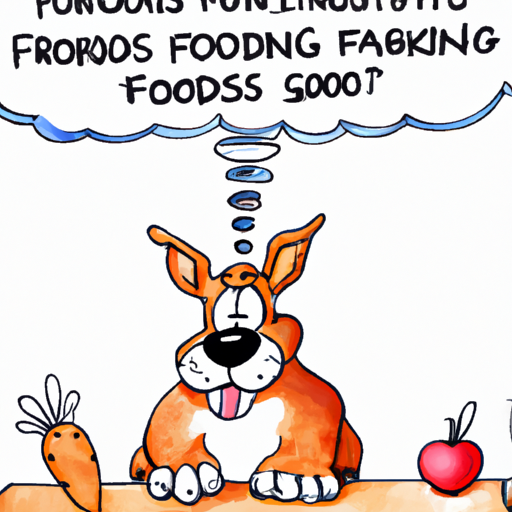Introduction
As a caregiver to your furry friend, you’re probably aware of the importance of a well-balanced diet. You want your canine companion to thrive, and a large part of that is ensuring they’re receiving the proper nutrients. But what foods are safe for dogs to consume? Let’s dive into this question.
The Essentials: Proteins, Carbohydrates, and Fats
First and foremost, your dog’s diet should consist of three fundamental elements:
- Protein: This forms the building blocks of cells, organs, and tissues.
- Carbohydrates: These provide a quick source of energy.
- Fats: They act as a long-term energy reserve and aid in nutrient absorption.
Here are some examples of each:
| Nutrient | Food Source |
|---|---|
| Protein | Chicken, Beef, Fish |
| Carbohydrates | Rice, Potatoes, Pasta |
| Fats | Fish oil, Flaxseed |
Remember to prepare these foods properly and avoid any seasonings that might be harmful to your pet.
Foods That Are Safe to Share
While we’re used to restricting our dogs to kibble and canned food, there are several “human” foods that they can safely enjoy.
- Apples: Full of vitamins A and C, just remember to remove the seeds.
- Carrots: They are low in calories and high in fiber and vitamins.
- Blueberries: These are a great source of antioxidants.
Foods to Avoid at All Costs
On the flip side, there are certain foods you should never feed your dog, no matter how much they beg with those puppy dog eyes. Some of these include:
- Chocolate: It contains theobromine, toxic to dogs.
- Onions and Garlic: They can damage your dog’s red blood cells.
- Grapes and Raisins: These can lead to kidney failure in dogs.
FAQs
Here are some common questions caregivers like you often have:
1. Can my dog eat dairy products?
While some dogs are lactose intolerant, others can tolerate dairy in small amounts. Monitor your dog for any signs of digestive upset.
2. Is it okay to share my leftovers with my dog?
It depends on what you’re eating. Avoid sharing food that’s been seasoned or contains any harmful ingredients.
3. How much food should I give my dog?
The amount of food your dog needs can vary based on their age, size, and activity level. It’s best to consult with your vet for a personalized recommendation.
In conclusion, while there’s a wide range of foods dogs can safely eat, always prioritize specially formulated dog food to ensure they’re getting a balanced diet, and treat human food as an occasional treat. If in doubt, consult your vet.



